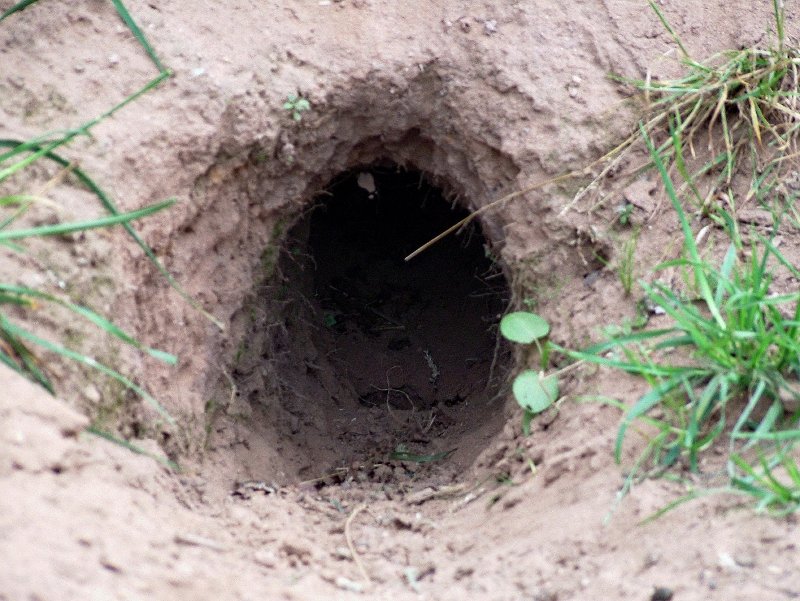Habitat
Today, the
rabbit has moved to all over Europe, Australia, New Zealand, and
some countries in the Mediterranean. Oryctolagus cuniculus
are found in temperate, tropical, and terrestrial habitats
in the savanna or grasslands, as well as forests. They can
be seen in the grazing lands in the oceanic islands, as well as
the dunelands and semi desert. These rabbits prefer dry
areas with softer soil for burrowing. They also tend to live in
brushy fields because of the protection it offers from
predators.
 The
rabbits dig complex burrows, or warrens, that can range up to 3
meters deep and 45 meters long. The main entrances have
mounds of dirt around them; however there also may be numerous
smaller openings with no mounds. The main living chambers
can range from 30 to 60 cm high. One colony that was
studied consisted of 407 rabbits, and their warren had 2,080
entrances to it. This is a good example to just how large
these burrows can be. Because Oryctolagus cuniculus
are essentially nocturnal, they come out of the burrows at night
in search of food to eat, and return to them in the early hours
of the morning.
The
rabbits dig complex burrows, or warrens, that can range up to 3
meters deep and 45 meters long. The main entrances have
mounds of dirt around them; however there also may be numerous
smaller openings with no mounds. The main living chambers
can range from 30 to 60 cm high. One colony that was
studied consisted of 407 rabbits, and their warren had 2,080
entrances to it. This is a good example to just how large
these burrows can be. Because Oryctolagus cuniculus
are essentially nocturnal, they come out of the burrows at night
in search of food to eat, and return to them in the early hours
of the morning.
Click
here to learn about adaptations of
the European Rabbit
If you want to go back to see the history click
here